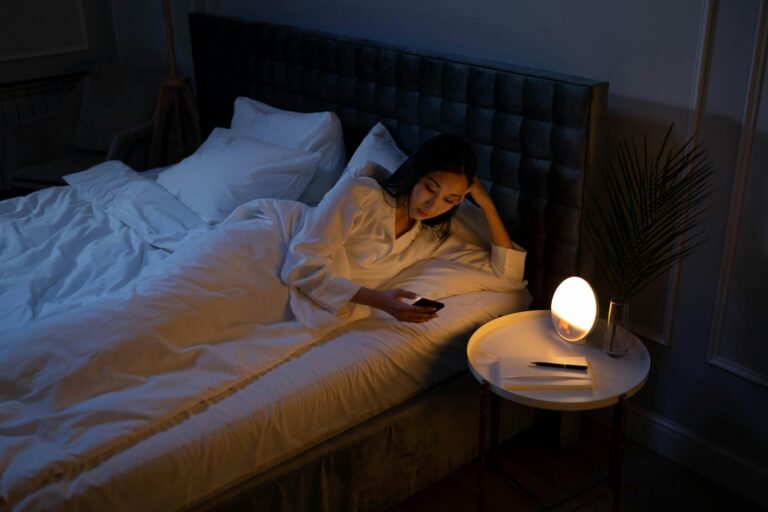Understanding Sleep Disorders: The Hypersomnia Disease

Are you struggling with sleep disorders and finding it difficult to get a good night’s rest? Look no further than Vector Sleep Clinic, conveniently located in the heart of Rego Park and easily accessible from all five boroughs. Our licensed and insured clinic specializes in Understanding sleep disorders, including the debilitating Hypersomnia Disease. In today’s fast-paced world, sleep disorders have become all too common, negatively impacting our health and productivity. From insomnia to sleep apnea, these disorders pose serious risks to our well-being. However, at Vector Sleep Clinic, we provide a solution through comprehensive care for restful sleep. By completing a sleep study, you can prevent serious health issues such as heart attacks, strokes, high blood pressure, and even car accidents. Don’t let sleep disorders disrupt your life any longer – visit Vector Sleep Clinic and unlock the magic of rejuvenation.
Understanding Sleep Disorders
Sleep disorders are a common problem that many people face in today’s fast-paced world. These disorders can have a negative impact on our overall health and productivity. Some of the most common sleep disorders include insomnia, sleep apnea, restless leg syndrome, and hypopnea. If left untreated, these disorders can lead to serious health issues such as heart attacks, strokes, high blood pressure, car accidents, problems at home or work, sexual dysfunction, and even obesity. Thankfully, there are solutions available to help improve the quality of our sleep and overall well-being.
The Hypersomnia Disease
One specific sleep disorder that many people struggle with is hypersomnia disease. Hypersomnia is characterized by excessive daytime sleepiness, which is not alleviated by a sufficient amount of nighttime sleep. Individuals with hypersomnia often find themselves needing to take multiple naps throughout the day, and feel constantly groggy and fatigued. It can significantly impact their quality of life and daily functioning.
Definition
Hypersomnia is a neurological disorder that affects the brain’s ability to regulate sleep and wakefulness. It is characterized by excessive daytime sleepiness and a prolonged duration of sleep at night. People with hypersomnia often struggle to stay awake during the day, regardless of how much sleep they have had.
Symptoms
The common symptoms of hypersomnia include:
- Excessive daytime sleepiness
- Difficulty waking up in the morning, even after a full night’s sleep
- Difficulty concentrating or thinking clearly
- Memory problems
- Irritability and mood changes
- Slow thinking and reaction times
Diagnosis
Diagnosing hypersomnia involves a thorough evaluation of an individual’s medical history, physical examination, and sleep diary. The doctor may also recommend additional tests such as polysomnography and the multiple sleep latency test. These tests help to assess sleep patterns, identify any underlying sleep disorders, and determine the severity of hypersomnia.
Treatment
Treating hypersomnia typically involves a combination of lifestyle changes, medications, and therapies. Lifestyle changes may include maintaining a consistent sleep schedule, avoiding caffeine and alcohol, creating a comfortable sleep environment, and managing stress and anxiety. Medications such as stimulants or wake-promoting agents may be prescribed to help improve alertness during the day. Additionally, therapy techniques such as cognitive-behavioral therapy for insomnia (CBT-I) can be beneficial in managing hypersomnia symptoms.
Consequences of Untreated Hypersomnia
If left untreated, hypersomnia can have significant consequences on an individual’s health, daily life, and relationships.
Impact on Health
Persistent excessive daytime sleepiness can increase the risk of accidents and injuries, both at home and in the workplace. It can also lead to impaired cognitive functioning, memory problems, and difficulty concentrating. Additionally, untreated hypersomnia has been associated with an increased risk of developing other medical conditions such as obesity, diabetes, and cardiovascular diseases.
Impact on Daily Life
Excessive daytime sleepiness makes it challenging to stay alert and focused throughout the day. It can interfere with work or school performance, leading to decreased productivity and an overall reduction in quality of life. Simple tasks may take longer to complete, and individuals may find themselves struggling to stay awake during important meetings or classes.
Effect on Relationships
Hypersomnia can also have a significant impact on relationships. The excessive sleepiness and fatigue can lead to irritability, mood swings, and a lack of energy for socializing or participating in activities with friends and family. This can strain relationships and potentially cause feelings of isolation and frustration for both the individual with hypersomnia and their loved ones.
The Importance of Sleep Studies
Sleep studies play a crucial role in diagnosing and understanding sleep disorders such as hypersomnia. They provide valuable insights into an individual’s sleep patterns and help identify any underlying issues or abnormalities.
What is a Sleep Study?
A sleep study, also known as polysomnography, is a non-invasive test that monitors and records various physiological factors during sleep. It involves spending a night at a sleep clinic, where sensors and electrodes are attached to the body to measure brain activity, heart rate, breathing patterns, oxygen levels, and movement.
Benefits of Sleep Studies
Sleep studies provide valuable information that helps healthcare professionals accurately diagnose sleep disorders and develop personalized treatment plans. They help identify the presence of underlying conditions such as sleep apnea, restless leg syndrome, or other sleep-related breathing disorders. Sleep studies also allow for the monitoring of treatment effectiveness and adjustment if necessary.
How to Prepare for a Sleep Study
To prepare for a sleep study, it is important to follow any instructions provided by the sleep clinic. This may include avoiding caffeine and alcohol, taking a shower before the study, and bringing comfortable sleepwear and personal items from home. It is also essential to inform the healthcare provider about any medications or medical conditions beforehand.
Vector Sleep Clinic: Your Partner in Sleep Health
At Vector Sleep Clinic, we understand the importance of a good night’s sleep and the impact it can have on overall health and well-being. As a trusted sleep clinic conveniently located in the heart of Rego Park, we offer comprehensive services to help individuals with sleep disorders, including hypersomnia, achieve better sleep and improve their quality of life.
About Vector Sleep Clinic
Vector Sleep Clinic is a licensed and insured sleep clinic that is committed to providing reliable and trustworthy care. We have a team of expert staff who specialize in sleep disorders and utilize the latest technology to diagnose and treat various sleep conditions.
Specialized Services
At Vector Sleep Clinic, we offer a range of specialized services to address the unique needs of individuals with sleep disorders. These services include sleep studies, diagnostics, personalized treatment plans, and ongoing support to ensure optimal sleep health.
Expert Staff and Technology
Our team of highly trained and experienced healthcare professionals is dedicated to delivering the highest standard of care. We utilize advanced technology and equipment to accurately diagnose and monitor sleep disorders, allowing us to provide personalized treatment options tailored to each individual’s needs.
Diagnosing Hypersomnia
Diagnosing hypersomnia involves a comprehensive evaluation that takes into account an individual’s medical history, physical examination, and sleep assessments.
Medical History and Physical Examination
During the medical history and physical examination, the healthcare provider will ask detailed questions about sleep patterns, daytime symptoms, and any underlying medical conditions or medications. They may also perform a physical examination to rule out any potential underlying causes of excessive sleepiness.
Sleep Diary and Questionnaires
Keeping a sleep diary and completing questionnaires can provide valuable information about an individual’s sleep patterns, habits, and symptoms. It helps identify any recurring patterns, potential triggers, and the impact of excessive sleepiness on daily functioning and quality of life.
Polysomnography
Polysomnography is a comprehensive sleep study that monitors various physiological parameters during sleep. It involves spending a night at a sleep clinic, where sensors and electrodes are attached to the body to record brain activity, eye movements, heart rate, breathing patterns, oxygen levels, and muscle activity. These measurements help detect any abnormalities or disruptions in sleep patterns.
Multiple Sleep Latency Test
The multiple sleep latency test (MSLT) is another diagnostic tool used to evaluate daytime sleepiness and distinguish between different sleep disorders. It measures how quickly an individual falls asleep during a series of scheduled naps throughout the day. The MSLT helps assess the severity of excessive daytime sleepiness and determine the appropriate treatment approach.
Treating Hypersomnia
Treating hypersomnia typically involves a combination of lifestyle changes, medications, and therapies to help manage excessive sleepiness and improve daytime functioning.
Lifestyle Changes
Making certain lifestyle changes can significantly improve the symptoms of hypersomnia. This may include maintaining a consistent sleep schedule, avoiding caffeine and alcohol, creating a comfortable sleep environment, and practicing relaxation techniques to reduce stress and anxiety.
Medications
In some cases, medications such as stimulants or wake-promoting agents may be prescribed to help promote wakefulness during the day. These medications can help individuals with hypersomnia stay alert and focused, improving their overall productivity and quality of life.
Therapies and Techniques
Therapeutic techniques such as cognitive-behavioral therapy for insomnia (CBT-I) can be beneficial in managing hypersomnia symptoms. CBT-I focuses on improving sleep hygiene, addressing negative thought patterns and behaviors related to sleep, and establishing healthy sleep habits.
Supportive Care and Lifestyle Tips for Better Sleep
In addition to medical treatment, there are several supportive care strategies and lifestyle tips that can promote better sleep and overall well-being.
Creating a Sleep Routine
Establishing a consistent sleep routine can help regulate sleep-wake cycles and improve sleep quality. Going to bed and waking up at the same time each day, even on weekends, can train the body to follow a consistent sleep pattern.
Improving Sleep Environment
Creating a sleep-friendly environment can enhance the quality of sleep. This includes keeping the bedroom cool, dark, and quiet, using comfortable bedding and pillows, and removing any distractions such as electronic devices or excessive noise.
Managing Stress and Anxiety
Practicing stress management techniques such as deep breathing exercises, meditation, or yoga can help relax the mind and promote better sleep. Engaging in activities that help reduce stress and anxiety throughout the day can also have a positive impact on sleep quality.
Exercise and Diet
Regular exercise has been shown to improve sleep quality and overall health. Engaging in moderate aerobic exercise at least 3-4 times a week can help regulate sleep patterns and promote better sleep. Additionally, maintaining a balanced diet and avoiding heavy or spicy meals close to bedtime can also aid in improving sleep quality.
Frequently Asked Questions
What lifestyle factors contribute to hypersomnia?
There are several lifestyle factors that can contribute to hypersomnia. These may include irregular sleep patterns, excessive alcohol or caffeine consumption, poor sleep hygiene, and high levels of stress and anxiety.
Can hypersomnia be cured?
While there is no known cure for hypersomnia, it can be effectively managed with the right treatment approach. By implementing lifestyle changes, utilizing medications if necessary, and undergoing therapy if recommended, individuals with hypersomnia can significantly improve their symptoms and regain control of their sleep health.
Is hypersomnia hereditary?
Hypersomnia can have a genetic component, meaning that it can run in families. However, it can also occur without any family history. If a close family member has been diagnosed with hypersomnia, it may be beneficial to discuss this with a healthcare professional.
Conclusion
Understanding and addressing sleep disorders such as hypersomnia is essential for maintaining overall health and well-being. Seeking professional help from a trusted sleep clinic like Vector Sleep Clinic can provide individuals with the necessary support and guidance to overcome the challenges associated with hypersomnia. By taking control of your sleep health and following a comprehensive treatment plan, you can unlock the power of restful nights and improve your quality of life.






